Agribusiness has been touted as a sector that will produce the next generation of billionaires across the world given the increasing global population amidst fixed land and climate change menace.
In Uganda, a number of people are increasingly taking on commercial farming. However, some have jumped on this lucrative business out of bandwagon and sheer excitement driven from some exaggerated success stories. This has seen them lose their hard-earned money and abandon farming business.
It is therefore advisable for a new commercial farmer to carryout extensive research before zeroing on which agribusiness enterprise to invest in.
Poultry farming is one profitable enterprise that excited new farmers have made losses from.
However, those who have made research are making a killing from rearing chickens either for meat or eggs. For example, while you can earn as high as Shs17m and above net profit from 500 chicken layers, you can also earn less or make losses depending on how informed you’re about this enterprise.
In this article, we are going to focus on layers/eggs production. Are layers worth it? Can you make money from layers? How do you minimize expenditure and maximize profit?
Godfrey Kigoye, a Senior Trainer at Namugongo based Katende Harambe Rural & Urban Training Centre will analyze for us the business of keeping layers. He has been in this business for close to 20 years now. We are going to use a stock of 500 exotic birds.
Kigoye says a poultry farmer should ensure that the money to feed the 500 birds to the point when they start laying eggs is readily available.
“This is because when layers don’t eat for a day or eats less, egg production falls sharply. Others stop laying and it takes them time to recover from the stress,” Kigoye said in an interview with Business Focus.
One day old chicks (exotic) will cost about Shs1.8m considering that each goes for Shs3700 at current market prices.
Housing
Housing should be 15ft width and 45ft length; height doesn’t matter much. According to Kigoye, this can cost about Shs5m when one uses local materials like timber, chain link, iron sheets and a few bricks,
This can be deep litre system (you need coffee husks for this system) or cage system (you can have more chickens in the cage system). Coffee husks will cost about Shs200,000.
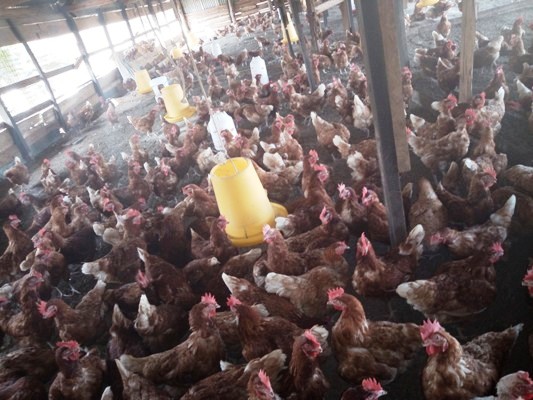
For cage system, you can have four cages each carrying 120 chickens.
After the poultry house, you need to buy water and feed troughs. You need 20 feeders and 20 drinkers for 500 birds. These will cost about Shs200,000.
Preparation of the brooder
Kigoye says site selection for the brooder is vital.
He advises farmers to disinfect the area and its surroundings, then apply saw dust and place brooding papers on top before introducing in the chicks.
“Curve all the corners. A good brooder should be in an oval form,” Kigoye says, adding that space for ventilation should be provided.
“Disinfect again and warm or heat the brooder, then bring in the chicks,” he advises.
He says they should be given water first before feeds.
“Some lose chicks on day one because they start with giving them feeds instead of water. Give them feeds 30 minutes after them taking water,” he says, noting that water has vitamins.
Feeds
Kigoye says from day one up to the point the 500 birds are sold off as layers, they will have eaten a total of 30,600 kilograms of feeds. He emphasizes that it is cheaper to formulate/mix feeds at the farm than buying already made ones from the market. For example, when formulated at the farm, a kilogram currently costs Shs600 and when bought it will cost Shs900.
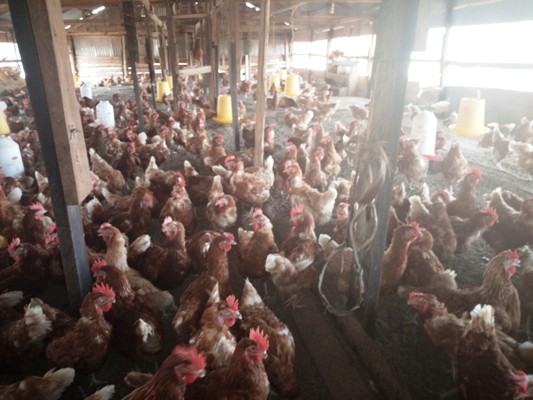
This means when feeds are formulated at the farm, it will cost Shs18.36m.
When they are bought from the market, it will cost a farmer Shs27.54m.
It is worth noting that at 0-6 weeks, chicks are given chick mash while at 6-22 weeks, they are given Growers mash. At 22 and above, they are given layers mash.
Kigoye encourages farmers to learn how to mix their own feeds in order to cut on unnecessary expenditure.
Vaccination
Kigoye says on day one, chicks are vaccinated against malex. At seven days, they are vaccinated against Newcastle Disease (NCD). At 10 days, they are again given malex vaccine. At 14 days, they are vaccinated against Gomboro while at 21, they are given IBR vaccine.
At 30 days, they are vaccinated against Gomboro and NCD.
At 45 days, they are again given Gomboro vaccine while at 60 days, they are given Foul Typhoid vaccine. At 75 days, it is Foul pox and at 120 days it is NCD and IBR.
After this, farmers are advised to repeat New Castle Disease Vaccination every two to three months. Vaccination will cost about Shs300,000 while workers will cost you about Shs2.16m.
Diseases Control & Management
In poultry just like in livestock, bio-security is key in managing diseases. Bio-security is the management of diseases and pests on the farm.
“One should have water bath points at the entrance of a poultry house. The water should be mixed with a disinfectant,” Kigoye advises, adding that workers should wear overalls and gumboots at all times.
Besides vaccinations, a farmer should have a first aid kit consisting of antibiotics, de-wormers among other medicines to help on emergency situations before calling a Vet doctor.
When it comes to management, extra care should be given to your birds. Eggs should be collected 3-4 times a day not only to avoid breakages and them being eaten by the birds.
A farmer is also advised to carry out a de-breaking exercise when chicks are three months old to avoid pecking.
“It is also a good practice to change litre two times in a year. Coffee husks should be 3 inches deep,” he says adding that they should be turned whenever they get wet.
It is also advisable to provide enough feeds and water in the troughs.
“To avoid wastage of feeds, put one third of feeds in the troughs. If you fill it, some feeds will fall off,” he says.
Sickbay
A farmer is also advised to have a sickroom or an isolation room where sick birds are taken.
“Birds of the same size should be kept together; isolate and put small birds together to avoid competition for food,” Kigoye says.
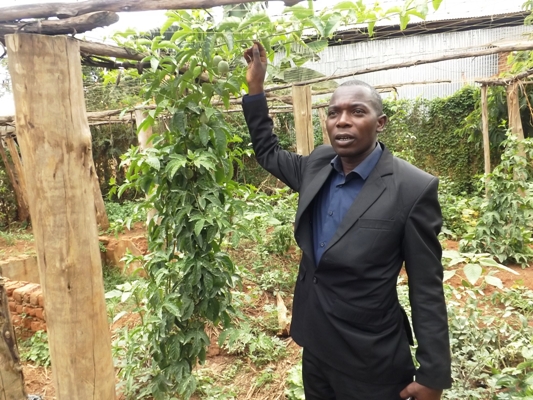
Record Keeping
Any person in commercial layer business should record every coin spent.
“Record tools and equipment you use on the farm. Also record working capital; when you buy feeds and pay for water and electricity bills, record everything,” he says.
When birds die, record the number and possible reasons why they died. Under good management, Mortality rate is normally recorded at more than 6%.
It also important to record the eggs collected per day.
Production
According to Kigoye, at 6-7 months, birds will have reached egg production peak. Under good management practices, a farmer is expected to collect 390-400 eggs per day.
This translates to about 13 trays per day. It is worth noting that birds can lay eggs for a period of one and a half years under good care. This means that in a year, a farmer will get 4,745 trays (13 trays x365 days).
From one and a half years, a farmer is advised to start selling the off layers because egg production starts to fall. This can go on up to two years.
“At one and a half years, start identifying non laying chickens and sell them for they will be eating without giving you eggs,” he says.
Market
Kigoye says market for eggs is readily available. Locally, eggs can be sold to wholesale buyers in Owino (St. Balikuddembe market), Kafumbe-Mukasa Road, Kisenyi, Nakawa and Nakasero markets. Schools, hospitals and supermarkets can also offer market to poultry farmers.
“The immediate market for a farmer is the farmer himself and the neighbourhood,” Kigoye says.
Regionally, market is available in Nairobi (Kenya), Kigali (Rwanda) and Juba (South Sudan).
Making Business Sense Of Layers
Currently, a tray of eggs ranges between Shs8,000-9,000. Taking Shs8,000, a farmer will earn a gross profit of Shs37.96m from the 4,745 trays of eggs.
Additionally, a farmer will earn a gross profit of Shs6.75m from selling 450 off layers at an average of Shs15,000 each (they can even be sold at Shs20,000 each).
Kigoye says a farmer can also earn about Shs600,000 from selling poultry litre that is used as manure.
This means that a farmer will earn an average of Shs45.31m from eggs, off layers and poultry litre.
According to Kigoye, for a period of two years, a farmer will invest in the 500 birds about Shs28.82m including Shs800,000 allocated to miscellaneous expenditure.
This means that a farmer can earn as high as Shs16.49m net profit from the 500 birds for the period of two years (Shs45.31-Shs28.82m). This is when feeds are formulated at the farm.
Kigoye says the profit margin increases in the next restocking because the infrastructure (house) as well as tools and equipment remain unchanged. This means expenditure reduces, thus increasing profit margins.
“For new farmers, the experience gained in the first stock is priceless,” he says, advising farmers to start small and grow big regardless of the capital they have.
For inquiries or story tips, contact: 0775170346/staddewo@gmail.com




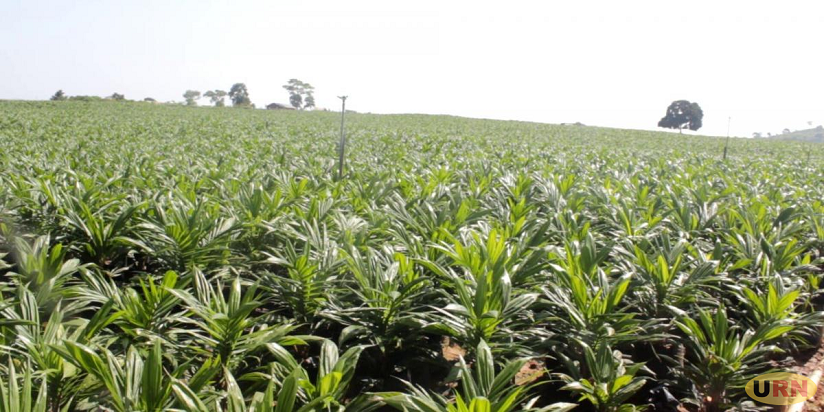
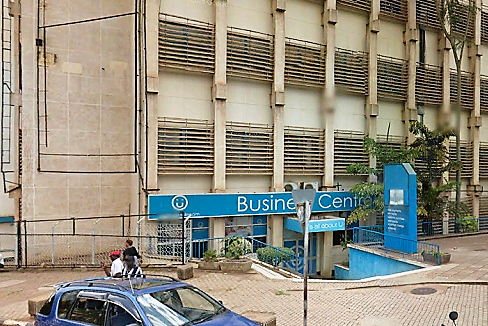

Thanks for free knowledge but lam requesting you to send it on my Gmail
Thanks for the insightful article! Am gonna have mine commence before September 2022,
How would I keep in touch with you for professional couching and partnership?
Kindly keep me posted on my address above. Thanks
I have already started all I need is more knowledge
I have learnt big from this portal, let me go and make millions if Allah craves. Thanks Business focus Uganda
Thanks for da good advice I need more from u
Good farmer in Uganda please just keep developing, expanding and growing the Agribusiness. May Allah (s.w.a) bless you abundantly for your free knowledge. Bye bye. BASS FOUNDATION UGANDA LTD.
Am already inspired to kickoff,jah bless u!
This is such an eye catching experience
God should bless you for providing this knowledge at a zero cost
Kindly share with me this information through
my email
Thanks
Jah bless
Hello
Thanks so much for this wonderful information.
Soon starting
I am so happy to be able read about poultry farming advice on layers.
I kindly request you if possible to help me with budget of 17500000/= . How many birds can fit that budget to raise for egg. Kindly help me make budget of capital expenditure, investment cost for period of 6 months and profit and loss for the year
Thanks for the the wonderful financial education on poultry business.
I loved this experience, I wonder if I can get this posted to my mail. Thanks
Very Good Bissnes & Agree Partner
Frankly speaking, a wonderful piece of professional information offered heartlessly free. Thanks but I wish you could send to my email. dakerason@gmail.com.com. you are awesomely gifted with a kind heart.
Thanks for the free knowledge. May the Almighty Allah bless you. This knowledge will help to start my business. Great knowledge.
Thanks but I need article on broilers